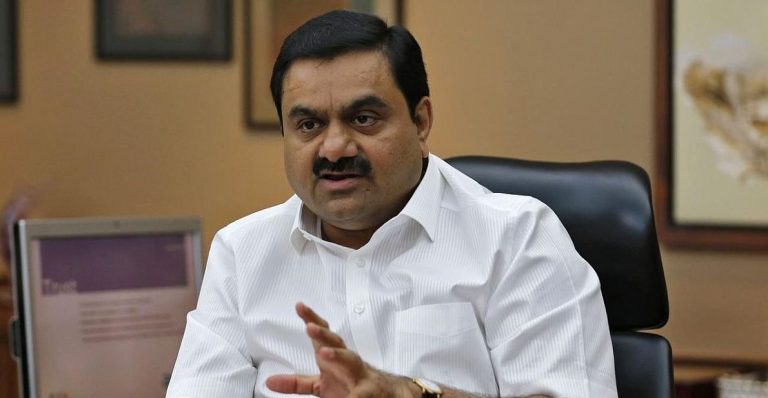The US fraud case against Indian billionaire Gautam Adani has sparked significant legal debate, as prosecutors in Brooklyn aim to build a strong case using documents that may reveal extensive bribery activities.
However, while the case appears to have critical evidence backing it, experts believe the likelihood of Adani being extradited to stand trial in the United States remains slim due to complex international legal challenges.
Adani’s legal team has firmly denied the accusations, calling them “baseless,” and the case is expected to unfold over a lengthy period, with key legal hurdles yet to be addressed.
Indictment against Gautam Adani
In November, federal prosecutors in Brooklyn unsealed an indictment against Gautam Adani, his nephew Sagar Adani, and another Adani Group executive, accusing them of bribing Indian officials to encourage the purchase of electricity produced by Adani Green Energy, a subsidiary of the Adani Group conglomerate.
Additionally, the charges allege that the Adani Group misled US investors about its anti-corruption practices, providing false assurances while allegedly engaging in bribery.
The charges leveled against the Adani executives include securities fraud and conspiracy, with five individuals tied to Azure Power Global, a US-listed company, also facing charges for allegedly violating the US Foreign Corrupt Practices Act (FCPA).
Azure Power, in a statement, confirmed its cooperation with the investigation, claiming that the individuals charged were no longer with the company.
Despite these allegations, the Adani Group has vowed to vigorously pursue all legal avenues to contest the accusations, describing them as unfounded.
While Gautam Adani has not been taken into custody, the case has drawn significant attention in India.
He was publicly seen at least twice after the indictment, including attending a major event on December 9, alongside Indian Prime Minister Narendra Modi.
These appearances have fueled speculation regarding Adani’s status and the potential for legal proceedings, especially as his business empire faces increasing scrutiny.
‘Bribe notes’
The indictment outlines some key evidence that could strengthen the US prosecution’s case, including “bribe notes” found on Sagar Adani’s mobile phone.
Prosecutors also revealed that Gautam Adani emailed himself a copy of a search warrant and grand jury subpoena served to his nephew on March 17, 2023, marking these electronic records as potentially critical pieces of evidence.
Legal experts suggest these materials could play a significant role in demonstrating that both Adani and his nephew were aware of the misleading statements provided to investors, especially regarding the company’s anti-corruption efforts.
Stephen Reynolds, a former federal prosecutor, explained that such corroborating evidence strengthens the prosecution’s position.
“The allegations include references to corroborating material, and that always provides for a stronger case,” Reynolds told Reuters.
Significant legal challenge for prosecution
However, the defense is likely to argue that Gautam Adani had no direct involvement in the misleading statements about the company’s anti-bribery policies, which could provide a significant legal challenge for the prosecution.
In addition to this, securing live testimony from witnesses in India could prove difficult for US prosecutors.
Mark Cohen, a former federal prosecutor, highlighted the potential complications of obtaining witness testimony in India, especially if it could implicate local officials in corruption.
This could require diplomatic intervention from the Indian government, which has shown reluctance in the past to assist with cases that might reflect negatively on its officials.
India’s foreign ministry has already indicated that it has not received any formal extradition request from the US regarding Adani, describing the issue as a matter between private firms and the US Justice Department.
Despite these complications, the US prosecutors are pressing forward.
Drew Rolle, deputy chief of the business and securities fraud section at the Brooklyn US Attorney’s office, emphasized the importance of holding foreign companies accountable when they operate in US capital markets.
“It’s not only a bribery case, it’s an important securities enforcement case,” he stated at a conference on December 6.
Rolle noted that his office has successfully convicted foreign officials in similar cases, underscoring the US government’s commitment to protecting the integrity of its financial markets.
As the case develops, questions remain regarding the likelihood of Adani’s extradition. Legal experts agree that although the evidence against him may be compelling, political and diplomatic barriers could prevent the billionaire from facing trial in the US anytime soon.
For now, the Adani Group remains resolute in its defense, while US prosecutors continue to press their case, signaling that the legal battle could be prolonged and contentious.
With the legal and diplomatic hurdles ahead, the saga surrounding Gautam Adani’s alleged fraud and bribery charges is likely to continue drawing significant attention, not just in India, but also across global financial markets.
As this case unfolds, the broader implications for international corporate governance and the enforcement of foreign bribery laws will be closely watched.
The post US fraud case against Gautam Adani: Will the Indian billionaire face extradition for trial? appeared first on Invezz

